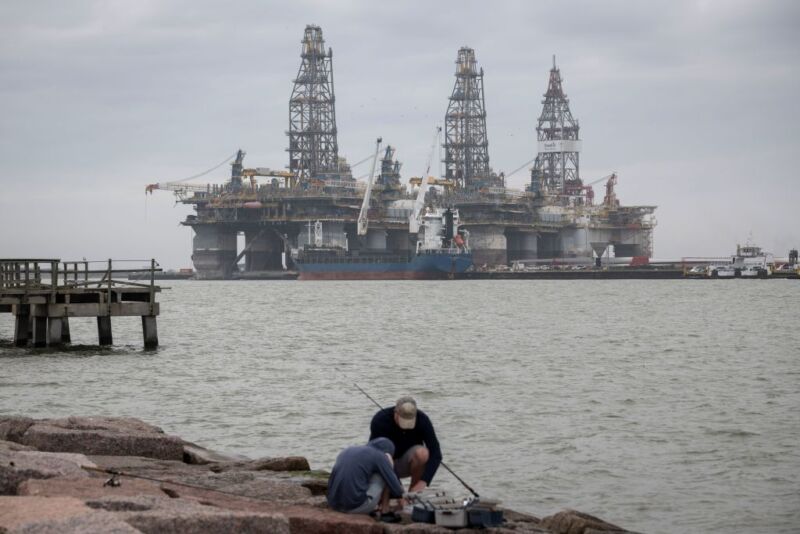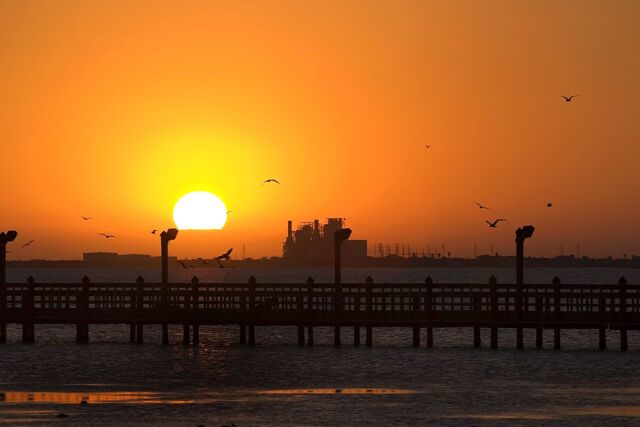
CORPUS CHRISTI, Texas—Five years ago, when ExxonMobil came calling, city officials eagerly signed over a large portion of their water supply so the oil giant could build a $10 billion plant to make plastics out of methane gas.
A year later, they did the same for Steel Dynamics to build a rolled-steel factory.
Never mind that Corpus Christi, a mid-sized city on the semi-arid South Texas coast, had just raced through its 50-year water plan 13 years ahead of schedule. Planners believed they had a solution: large-scale seawater desalination.
According to the plan in 2019, the state’s first plant needed to be running by early 2023 to safely meet industrial water demands that were scheduled to come online. But Corpus Christi never got it done.
That hasn’t stopped the city and its port authority from pursuing broader plans to build out a next-generation industrial sector around Corpus Christi Bay and make this region a rival to Houston, home to the nation’s largest petrochemical complex, 200 miles up the Gulf Coast.
As efforts to cut carbon emissions fall desperately behind the timetables established in decades of global climate accords, Corpus Christi is planning a massive expansion of its hydrocarbon sector, aimed at delivering oil and gas from Texas’ shale fields to global markets for decades to come.
All that’s missing is the freshwater. Now the commitments city officials made over the past five years are coming due. Exxon’s plastic plant started operations this year and will eventually consume 25 million gallons of water per day, even as the region’s water plan foresees demand exceeding supplies in this decade.

This summer, severe drought and heat pushed Corpus Christi into water use restrictions. Yet the desalination plans remained years away from completion, hung up on questions from state and federal environmental regulators—the Texas Commission on Environmental Quality and the US Environmental Protection Agency—over the ecological consequences of dumping hundreds of millions of gallons of salty brine per day into Corpus Christi Bay.
“I would love nothing more than to get right in front of their faces—the state, TCEQ, EPA, all of those agencies—and say, ‘Hey people! Do you realize that we need this permit now? We provide water for 500,000 people,” Corpus Christi mayor Paulette Guajardo told the city council in July, answering complaints over years of delays. “This is of urgency. We have to have this permit.”
Today the pursuit of desalination has become an increasingly desperate race to meet incoming demands. The number of plants proposed for Corpus Christi Bay has grown to five—two for the City of Corpus Christi, two for the Port of Corpus Christi and one for a private polymer manufacturer.
Last month, the TCEQ issued its first wastewater discharge permit to a plant proposed by the port, despite a challenge from the EPA signaling what could be a long legal fight ahead.
Regulators and scientists worry that each plant’s discharge of tens of millions of gallons of hyper-salty wastewater per day could disrupt major reproductive cycles for a host of aquatic species, which rely on the half-salty waters of the coastal bays for larvae to mature.
All together, environmentalists say, the five plants’ discharge, coupled with the water pollution and ocean freighter traffic from the industrial boom they would unleash, may constitute a near-fatal blow for life in the bay, whose once-teeming ecosystems have nursed communities on its banks since long before Corpus Christi.
https://arstechnica.com/?p=1895162

